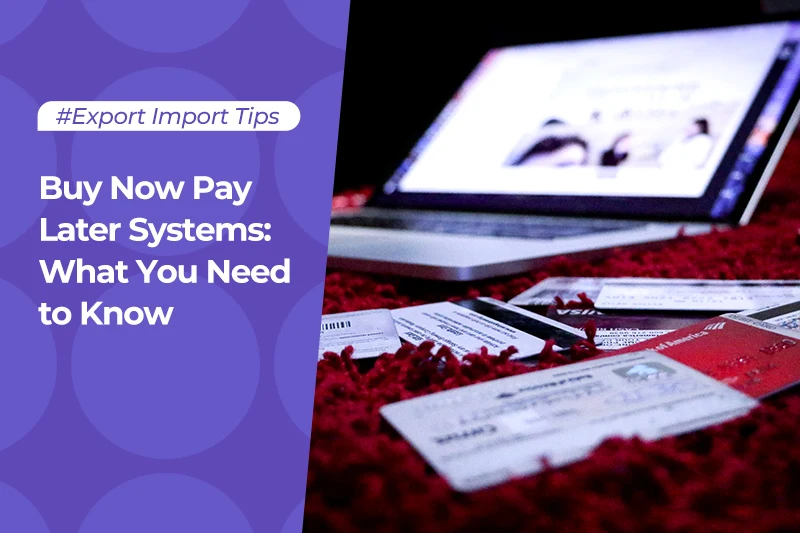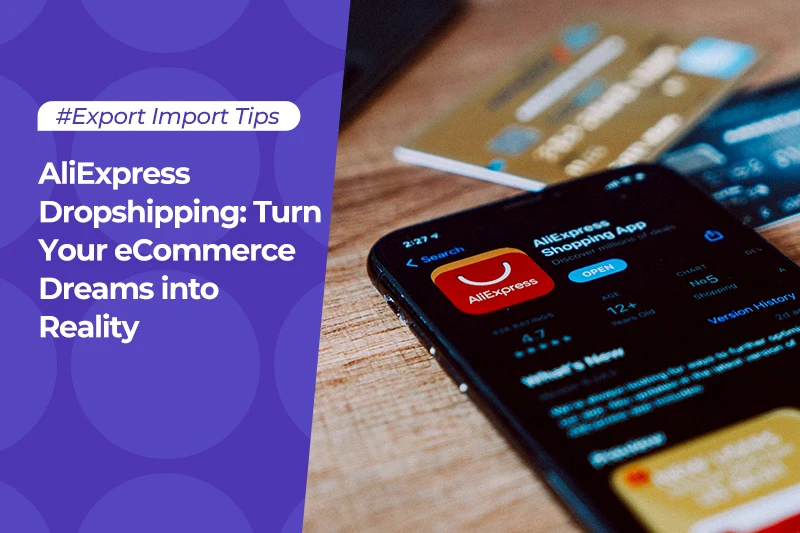What is Customs Clearance: Meaning and Process

In the globalized world we live in, international trade has become an integral part of our everyday lives. From the gadgets we use to the food we enjoy, goods cross borders to reach our hands. However, to get to us, these goods must navigate a complex web of customs procedures and regulations as they cross borders.
In this article, we discuss customs clearance - an essential process that keeps trade flowing by ensuring compliance with legal requirements, protecting national interests, and collecting duties and taxes. We will delve into the meaning and processes of customs clearance, demystifying this vital aspect of international trade.
From understanding the purpose of customs clearance to navigating documentation requirements and overcoming potential obstacles, we'll provide you with a comprehensive overview to simplify this often complex process.
Table of Contents
What is Customs Clearance?
"What does customs clearance mean?" is a common inquiry among businesses engaged in global trade, seeking to comprehend the intricate process of meeting legal requirements for importing or exporting goods across international borders.
Customs clearance refers to fulfilling the legal requirements to allow goods to enter or leave a country's borders. It involves documenting, examining, and releasing goods that pass through customs barriers. Without a clear grasp of customs clearance meaning, importers and exporters may find themselves facing costly delays and penalties, as this vital process ensures adherence to legal requirements and enables the smooth flow of goods across international borders.
During the process, customs officials inspect shipments to ensure they comply with the country's regulations, including verifying that the goods declared match the items being imported or exported, assessing duties or taxes payable, and ensuring compliance with any restrictions or prohibitions on certain goods.
Usually, a lot of paperwork is submitted to the customs authorities, such as commercial invoices, packing lists, and other relevant documents. It may also require paying duties, taxes, or tariffs based on the nature of the goods and their declared value.
Customs clearance can be a complex and critical aspect of international trade, as businesses must comply with customs regulations to avoid delays, fines, or seizure of goods. Many businesses rely on customs brokers or agents to navigate this process efficiently and ensure compliance with the various regulations and requirements.
What is a Customs Broker?
A customs broker is a specialist licensed by Customs and Border Protection1 agencies to aid importers and exporters with customs clearance. They offer:
- Regulatory Expertise: Deep knowledge of global customs laws and updates.
- Document Support: Assisting with accurate paperwork for customs clearance.
- Compliance Guidance: Ensuring goods meet import/export standards and classifications.
- Liaison Role: Communicating and resolving matters with customs officials.
- Tariff Understanding: Advising on duties, taxes, and potential cost-saving strategies.
- Clearance Assistance: Handling documentation, and payments, and facilitating smooth customs processes.
Using a customs broker streamlines compliance, saves time, and mitigates trade-related risks. Services offered may vary specific customs brokers may vary, so it is crucial to choose an experienced and reputable broker that matches your specific needs.
Customs Clearance Process

Documentation
Exporters or importers must prepare various documents, such as commercial invoices, packing lists, certificates of origin, bills of lading, and customs declaration forms. These documents provide detailed information about the goods being imported or exported and they are also the documents required for import customs clearance in the USA.
Customs Declaration
A customs declaration form is submitted to the relevant customs authority, providing comprehensive details about the goods, including their nature, quantity, value, and classification based on the applicable customs tariff code.
Examination and Inspection
Customs authorities may conduct inspections to verify the accuracy of the declared information or to ensure compliance with import or export regulations. They may also assess duties, taxes, or other fees based on the goods' value or quantity, following the country's customs laws.
Duty and Tax Assessment
Once the customs authority determines the applicable duties, taxes, or fees, the importer or exporter is responsible for paying these charges, typically before the goods can be released from customs and allowed into or out of the country.
Payment and Clearance
After completing the necessary formalities and paying the required fees, the customs authority grants approval for the goods to be released. The importer or exporter can then arrange for transportation and delivery of the goods to their final destination.
It's crucial to remember that customs clearance procedures can vary from country to country, and they are subject to changes in regulations or specific trade agreements. However, proper customs clearance is vital for facilitating smooth trade operations. After submitting all required documentation and paying the necessary fees, you should receive confirmation that your customs clearance was completed successfully, allowing the goods to proceed through the customs clearing process smoothly.
How to Calculate the Customs Clearance Fee?

Calculating the customs clearance fee involves considering various factors such as the value of the imported goods, the customs tariff rates applicable to those goods, and any additional fees or charges imposed by the customs authorities. While the exact calculation may vary depending on the country and specific circumstances, here's a general process for calculating the customs clearance fee:
Determine the Customs Value
The customs value is usually based on the transaction value of the imported goods, which includes the cost of the goods, any insurance and freight charges, and additional costs associated with transportation to the destination.
Identify the Applicable Customs Tariff Code
Goods are classified under specific customs tariff codes, also known as Harmonized System (HS) codes. These codes denote the nature, composition, and intended use of the goods. Look up the appropriate HS code for the imported goods to determine the corresponding customs duties and taxes.
Research Customs Tariff Rates
Consult the customs authority's tariff schedule or online customs database to find the customs tariff rates applicable to the HS code of the goods. Tariff rates are usually expressed as a percentage of the customs value or may have a specific flat rate per unit of measurement.
Calculate Customs Duties and Taxes
Multiply the customs value of the goods by the applicable tariff rate to calculate the customs duties. Additionally, if there are any specific taxes or fees, such as value-added tax (VAT), excise duty, or customs processing charges, include those in the calculation as well.
Account for Additional Charges
In some cases, customs clearance may involve extra charges such as customs broker fees, handling fees, inspection fees, or administrative fees. Take these into account when calculating the overall customs clearance fee.
It's important to note that customs clearance fees may vary widely based on the country, customs regulations, specific trade agreements, and the nature of the goods being imported or exported and securing the services of a licensed customs broker or consulting with the customs authorities can help provide precise guidance on the calculation of customs clearance fees in a specific context.
Tips to Simplify Your Customs Clearance Process
The import customs clearance process involves submitting the necessary documentation and paying applicable duties and taxes to ensure the smooth entry of goods into the country. The following tips will help you simplify the customs clearance process:

Seek Professional Advice
To have your customs clearance completed without hitches, it is best to work with a customs broker or freight forwarder. These professionals are well-versed in the intricacies of customs procedures and can guide you through the paperwork and requirements.
Keep Accurate Records
Keep a record of all your customs-related documents and transactions. This includes invoices, shipping records, customs declarations, and any communication with customs authorities. Not only does this help ensure compliance, but it also simplifies future clearance processes.
Be Aware of Changing Regulations
Customs regulations and procedures can change over time. Stay informed about any updates or revisions to avoid surprises during clearance. Check official government websites, consult with experts, or subscribe to newsletters related to trade regulations.
FAQs
How long does customs clearance take?
In general, customs clearance can take anywhere from a few hours to several days or even weeks in some cases. The length of time for customs clearance can vary depending on several factors, such as the efficiency of customs authorities, the accuracy of your paperwork, the type of goods you are moving, whether you qualify for Pre-Clearance and Trusted Trader Programs2, etc. It's always a good practice to plan and allow for potential delays, especially when you have international shipments.
Should I use a customs clearance agent?
The decision to use a customs clearance agent depends on your specific needs, experience, and resources. Consider the complexity of your shipments, your knowledge of customs processes and regulations, and the value of your time. If you think expert assistance will simplify the process, ensure compliance, and bring peace of mind, engaging a customs broker may be a wise choice.
If you decide to use a customs clearance agent, research reputable professionals with a good track record, seek recommendations from others in your industry and discuss their services and fees before making a final decision.
How much is the customs clearance fee?
The customs clearance fee can vary depending on several factors, including the complexity of the shipment, the country of import/export, the value of the goods, and any additional services required. Customs clearance fees typically cover the services provided by a customs broker or freight forwarder to facilitate the clearance process.
Furthermore, customs brokerage fees can vary among different providers, so it's advisable to obtain quotes from multiple customs brokers and compare the services and associated costs. Additionally, fees can fluctuate based on market conditions, changes in regulations, or other factors.
To get a more accurate estimate of the customs clearance fees for your specific situation, it is best to reach out to customs brokerage firms or freight forwarders who can assess the details of your shipment and provide you with a breakdown of the costs involved.
Do I need to pay import duties when exporting goods?
As a general rule, you do not need to pay import duties when exporting goods. Import duties are customs duties charged by the importing country's government on goods entering their territory. When you export goods, you are sending them out of your country, so the import duties are typically the responsibility of the importer in the destination country.
However, it's important to note that other fees or charges may be associated with exporting goods, such as export taxes, documentation fees, or fees for export-related services. These charges can vary depending on the regulations and practices of your country of export.
What is the meaning of Customs Clearance in international trade?
Customs Clearance in international trade refers to the procedure of getting approval from the local customs authorities to import or export goods across international borders. It involves the preparation and submission of required documentation, payment of tariffs, duties and taxes, and compliance with all customs regulations to legally move goods between countries.
What kind of goods require customs clearance?
All goods that are imported or exported between different countries require customs clearance. This includes personal items, commercial goods, and mail packages. Some examples can range from food products, consumer electronics, clothing, and machinery to raw materials.
What documents are necessary for the Customs Clearance process?
The necessary documents for the Customs Clearance process typically include a commercial invoice, packing list, bill of lading (for sea transport) or airway bill (for air freight), and other specific documents related to the product being imported like certain certificates, such as a certificate of origin. The requirements can vary depending on the country and type of goods involved.
Are there any common issues or delays in the Customs Clearance process, and how can they be avoided?
Yes, common issues in the Customs Clearance process include incorrect or incomplete paperwork, unexpected duties or taxes, and strict regulations for certain goods. These can often be avoided by ensuring paperwork accuracy, clarifying duties or taxes in advance, and researching any specific rules or restrictions for the items being shipped.
Sell on Alibaba.com
In conclusion, mastering the customs clearance process is pivotal for seamless international trade. Understanding its nuances, from documentation to compliance, ensures efficient movement of goods across borders. Whether you're a seasoned exporter or a budding entrepreneur, navigating customs smoothly is essential. To embark on this journey of global trade with confidence, leverage platforms like Alibaba.com, offering vast resources and a vast marketplace. Start selling on Alibaba.com today and unlock a world of opportunities for your business!
References
1. https://www.cbp.gov/
2. https://gregklaw.com/trusted-trader-programs-a-key-benefit-to-canadas-exporters/
Start your borderless business here
Tell us about your business and stay connected.
Keep up with the latest from Alibaba.com?
Subscribe to us, get free e-commerce tips, inspiration, and resources delivered directly to your inbox.
















